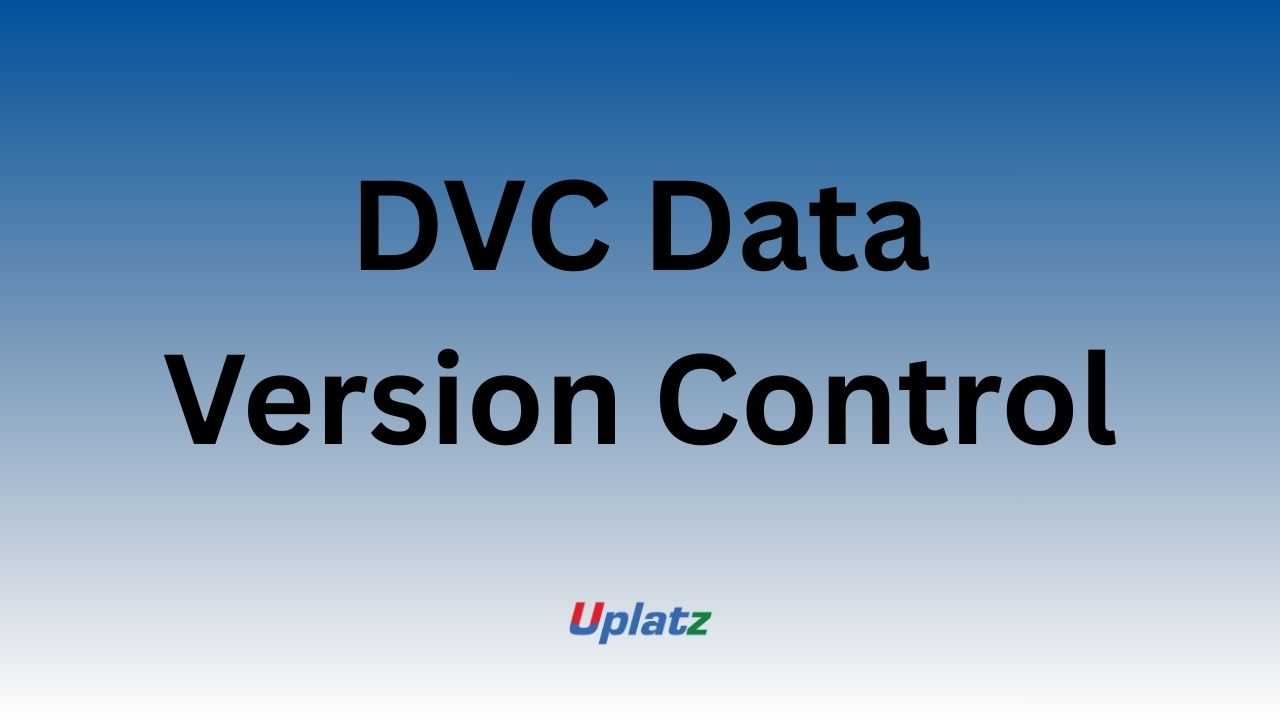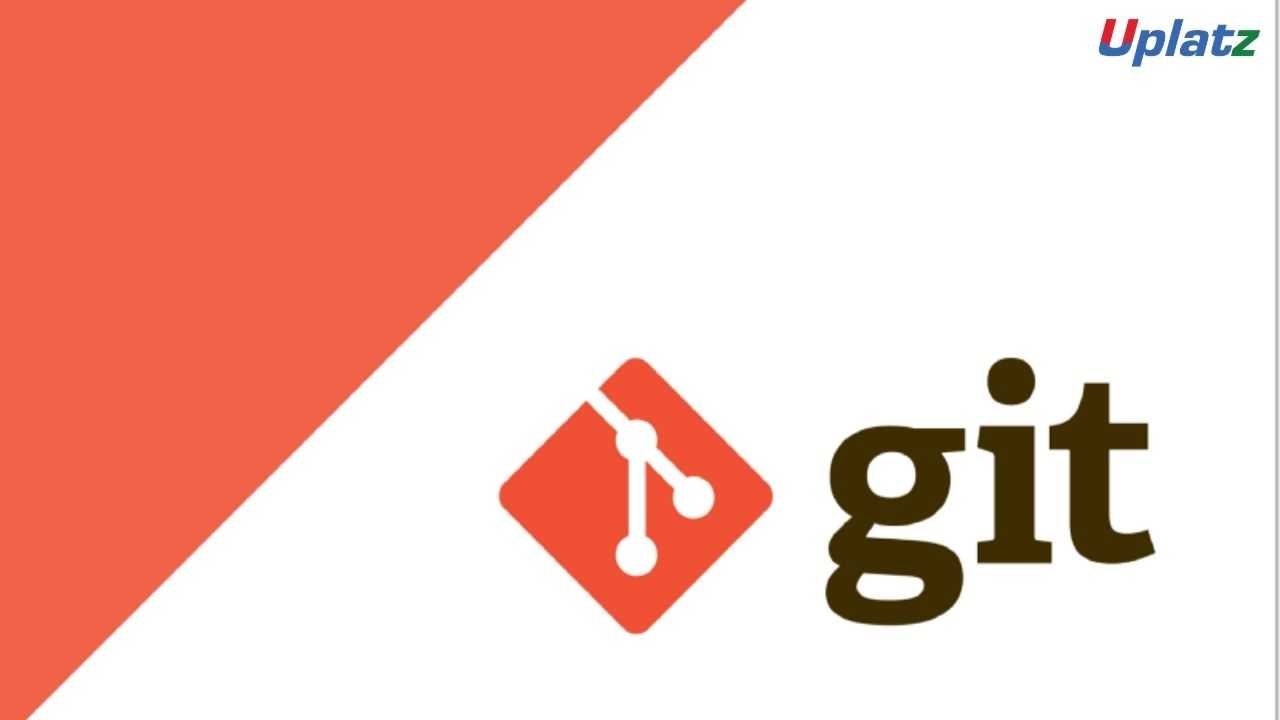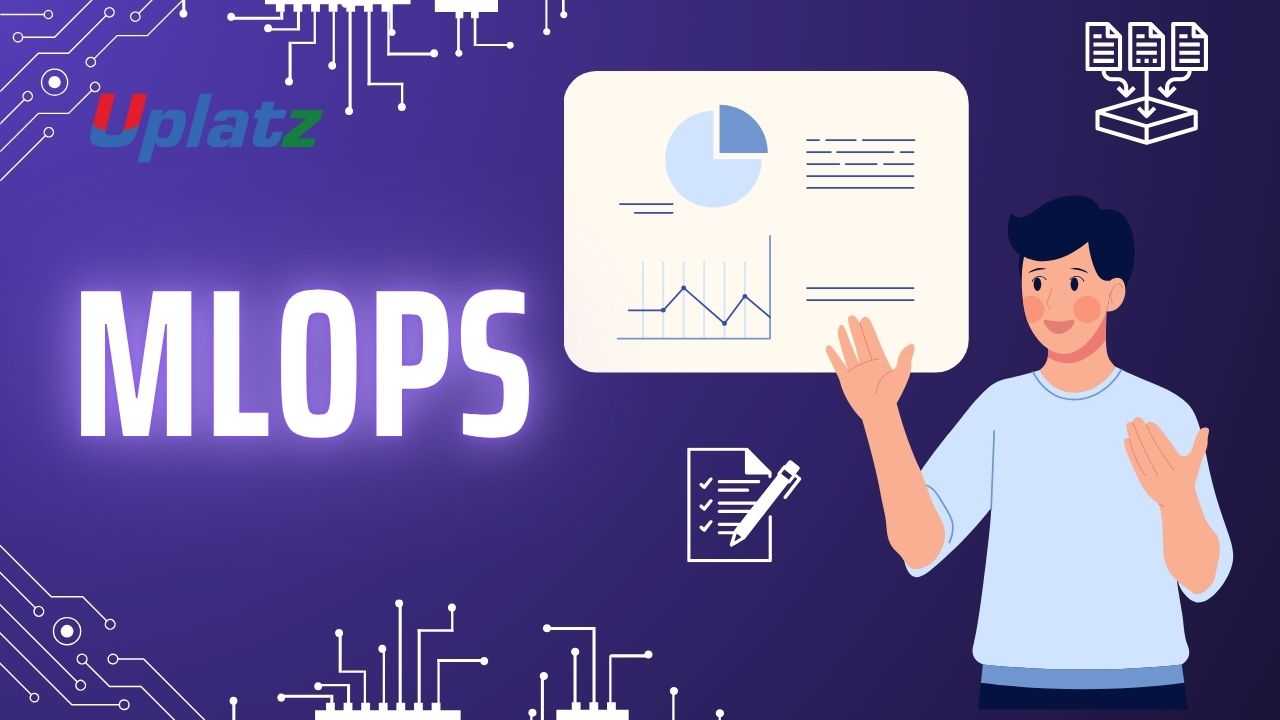DVC Data Version Control
Master DVC to track, version, and manage data, models, and experiments in machine learning projects. Price Match Guarantee
Full Lifetime Access
Access on any Device
Technical Support
Secure Checkout
Course Completion Certificate
Price Match Guarantee
Full Lifetime Access
Access on any Device
Technical Support
Secure Checkout
Course Completion Certificate
 97% Started a new career
BUY THIS COURSE (
97% Started a new career
BUY THIS COURSE (GBP 12 GBP 29 )-
 86% Got a pay increase and promotion
86% Got a pay increase and promotion
Students also bought -
-

- Git and GitHub
- 5 Hours
- GBP 12
- 353 Learners
-

- MLOps
- 10 Hours
- GBP 12
- 10 Learners
-

- MLflow
- 10 Hours
- GBP 12
- 10 Learners

DVC (Data Version Control) is an open-source tool designed to bring version control, reproducibility, and collaboration to machine learning (ML) and data science projects. Built to integrate seamlessly with Git, DVC allows teams to track datasets, models, experiments, and pipelines with the same ease as managing code. It bridges the gap between traditional software development and modern data workflows, ensuring consistency, scalability, and collaboration across environments.
In this Mastering DVC – Self-Paced Online Course by Uplatz, learners will gain a complete understanding of how to implement data versioning, pipeline automation, and experiment tracking in real-world machine learning projects. You’ll learn how to use DVC to make ML workflows reproducible, collaborative, and production-ready, preparing you for data science and MLOps roles that demand precision and efficiency.
🔍 What is DVC?
DVC (Data Version Control) is an open-source version control system tailored for data science and machine learning. While Git handles source code, DVC extends its functionality to large data files, ML models, and experiment results that are too big for standard version control.
It introduces the same concepts that made Git successful — commits, branches, and history tracking — but adapted for data-heavy workflows. DVC uses metadata files (stored in Git) to represent large datasets and models, while the actual binary data is stored in remote backends such as Amazon S3, Google Cloud Storage, Azure Blob, SSH, or on-premises file systems.
With DVC, data scientists and ML engineers can:
-
Version datasets and models efficiently.
-
Automate data pipelines for consistent training and evaluation.
-
Share, reproduce, and compare experiments easily.
-
Integrate seamlessly with existing Git repositories.
In essence, DVC enables Git-style collaboration for data and machine learning workflows — making projects transparent, reproducible, and scalable.
⚙️ How DVC Works
DVC introduces a simple yet powerful architecture built around Git integration, data pipelines, and remote storage.
-
Versioning Large Data:
Instead of committing large files directly, DVC tracks them using lightweight.dvcmetafiles, while storing the actual data in remotes (S3, GCP, Azure, SSH, etc.). -
Reproducible Pipelines:
Define stages for data preprocessing, model training, and evaluation using DVC pipelines. Each stage is tracked, allowing exact reproduction of results at any point. -
Experiment Management:
Run and compare experiments automatically with metrics, parameters, and plots to evaluate performance changes. -
Collaboration:
Multiple team members can sync data and models through DVC’s remote storage and Git integration. -
Automation:
DVC integrates with CI/CD tools to automate retraining, testing, and model deployment — a key step in operationalizing machine learning (MLOps).
Through these components, DVC enables end-to-end data and model lifecycle management while maintaining reproducibility and traceability across complex ML workflows.
🏭 How DVC is Used in the Industry
DVC is becoming a cornerstone of data-driven and MLOps workflows across industries. Organizations leverage it to standardize collaboration between data scientists, engineers, and DevOps teams.
Real-world use cases include:
-
ML Lifecycle Management: Tracking and reproducing model training runs in research and production.
-
Data Pipeline Automation: Automating preprocessing, training, and evaluation steps with pipeline dependencies.
-
Reproducibility in Research: Ensuring academic and enterprise experiments can be replicated exactly.
-
Model Governance & Compliance: Maintaining audit trails for data, code, and results.
-
Team Collaboration: Enabling distributed teams to share data efficiently without redundant copies.
Companies that emphasize data versioning and reproducibility — including startups, AI labs, and cloud-native enterprises — use DVC to streamline their ML operations and ensure transparent, scalable workflows.
🌟 Benefits of Learning DVC
Learning DVC empowers you to build production-grade machine learning pipelines with reliability and consistency.
Key benefits include:
-
Reproducibility: Recreate any experiment or result at any time.
-
Data Versioning: Track every dataset and model with Git-style precision.
-
Collaboration: Work with teams using shared remote storage and experiment tracking.
-
Scalability: Handle massive datasets and distributed pipelines with minimal overhead.
-
MLOps Integration: Combine DVC with CI/CD tools for automated retraining and deployment.
-
Tool Compatibility: Works alongside TensorFlow, PyTorch, Scikit-learn, and more.
-
Career Edge: Gain a highly demanded skill in data science, ML engineering, and MLOps.
By mastering DVC, you’ll move beyond ad hoc scripts and isolated experiments — towards structured, traceable, and efficient machine learning development.
📘 What You’ll Learn in This Course
This self-paced course walks you through the full lifecycle of using DVC — from setup to advanced deployment. You will learn to:
-
Understand DVC’s architecture and Git integration.
-
Set up data and model version control for ML projects.
-
Create reproducible pipelines for preprocessing, training, and evaluation.
-
Configure remote storage systems (S3, GCP, Azure, SSH, etc.) for collaboration.
-
Track and visualize metrics, parameters, and plots for experiments.
-
Compare results automatically to improve models iteratively.
-
Integrate DVC with CI/CD systems like GitHub Actions, GitLab CI, or Jenkins.
-
Collaborate across teams with shared repositories and reproducible workflows.
-
Apply best practices for data governance, storage management, and scaling.
By completing this course, you’ll have the confidence to implement DVC in your own projects or within an enterprise MLOps environment.
🧠 How to Use This Course Effectively
-
Review Git Basics: Refresh your understanding of commits, branches, and remotes.
-
Set Up DVC: Install DVC locally and connect it with your Git repository.
-
Start Small: Track small datasets to understand versioning fundamentals.
-
Build Pipelines: Automate multi-stage workflows (data prep → training → evaluation).
-
Use Remote Storage: Practice with S3 or Google Cloud for collaborative workflows.
-
Run Experiments: Compare metrics, visualize results, and optimize models.
-
Integrate with CI/CD: Automate retraining and model deployment.
-
Review & Document: Track all changes for future reproducibility.
Following this step-by-step progression ensures a smooth transition from fundamentals to advanced automation.
👩💻 Who Should Take This Course
This course is ideal for:
-
Data Scientists managing evolving datasets and model versions.
-
Machine Learning Engineers building reproducible, automated pipelines.
-
Researchers ensuring transparent and repeatable experiments.
-
DevOps/MLOps Engineers operationalizing ML workflows.
-
Students & Professionals entering data engineering or ML careers.
Whether you’re working on research, production ML, or automation, DVC provides the structure and scalability your workflows need.
🧩 Course Format and Certification
The course is self-paced and includes:
-
HD video lessons with real-world demonstrations.
-
Downloadable DVC configuration templates and examples.
-
Practical exercises on pipelines, remotes, and experiment tracking.
-
Quizzes to test comprehension and progress.
-
Lifetime access to materials with continuous updates.
After completing the final project, you’ll receive a Course Completion Certificate from Uplatz, verifying your expertise in DVC, data management, and MLOps workflow automation.
🚀 Why This Course Stands Out
-
Comprehensive Coverage: Covers DVC from installation to CI/CD integration.
-
Hands-On Projects: Practical exercises reinforce theoretical knowledge.
-
Industry Alignment: Focuses on reproducibility and MLOps readiness.
-
Tool Integration: Works with popular cloud storage and ML frameworks.
-
Career Relevance: Enhances credibility for data, ML, and DevOps roles.
By the end of this course, you’ll have a complete toolkit to manage datasets, track experiments, and scale ML operations with confidence and precision.
🌐 Final Takeaway
In today’s collaborative and data-intensive ML environment, DVC has become a must-have tool for ensuring reproducibility, scalability, and efficiency. It allows teams to treat data, models, and experiments as first-class citizens — versioned, shared, and tracked just like code.
The Mastering DVC – Self-Paced Online Course by Uplatz prepares you to lead data and ML projects with professional-grade version control and workflow automation. You’ll gain practical experience in managing complex ML pipelines and integrating DVC into modern MLOps ecosystems.
Start learning today and take your machine learning projects to the next level with Data Version Control (DVC).
By completing this course, learners will:
-
Version control datasets and ML models using DVC.
-
Build reproducible pipelines for ML workflows.
-
Manage remote storage for data collaboration.
-
Track and compare experiments systematically.
-
Integrate DVC with MLOps and CI/CD practices.
-
Collaborate effectively on team-based ML projects.
Course Syllabus
Module 1: Introduction to DVC
-
What is DVC and why it’s needed
-
DVC vs Git: differences and collaboration
-
Installing and setting up DVC
Module 2: Core Concepts
-
Data versioning basics
-
Tracking large files with
.dvcfiles -
Staging, committing, and pushing with Git + DVC
Module 3: Remote Storage
-
Configuring DVC remotes (S3, GCS, Azure, SSH, local)
-
Pushing and pulling datasets/models
-
Best practices for remote storage
Module 4: Pipelines & Reproducibility
-
Creating DVC pipelines (
dvc.yaml) -
Stages, dependencies, and outputs
-
Reproducibility across environments
Module 5: Experiment Tracking
-
Running and logging experiments
-
Comparing results with metrics and plots
-
Hyperparameter tuning with DVC
Module 6: Collaboration & Team Workflows
-
Sharing data and models in teams
-
Git branches + DVC pipelines
-
Resolving conflicts in data versioning
Module 7: Integrations
-
DVC with Jupyter Notebooks
-
MLOps pipelines with DVC
-
CI/CD automation (GitHub Actions, GitLab, Jenkins)
Module 8: Advanced Features
-
Caching and performance optimization
-
Custom pipelines and parameters
-
Using DVC with Docker and Kubernetes
Module 9: Real-World Projects
-
End-to-end ML workflow with DVC
-
Computer vision project with dataset versioning
-
NLP pipeline with experiments tracked via DVC
Module 10: Best Practices
-
Structuring ML repos with DVC
-
Data governance and compliance
-
Scaling DVC for enterprise ML
Learners will receive a Certificate of Completion from Uplatz, validating their expertise in DVC and ML workflow management. This certification demonstrates readiness for roles in ML engineering, data science, and MLOps.
DVC skills prepare learners for roles such as:
-
Machine Learning Engineer
-
Data Scientist
-
MLOps Engineer
-
Research Engineer
-
Data Engineer
With the rise of reproducibility and governance in ML projects, DVC is becoming a must-have tool in the MLOps and data science ecosystem.
-
What is DVC and why is it used?
DVC is a tool for data, model, and experiment versioning, enabling reproducibility in ML workflows. -
How does DVC work with Git?
Git manages code, while DVC tracks large data files and models via.dvcmetadata files. -
What are DVC pipelines?
Pipelines define stages of ML workflows (data prep, training, evaluation) with dependencies. -
How does DVC handle large files?
DVC stores large files in remote storage (S3, GCP, Azure, etc.) and tracks them with metadata. -
What is experiment tracking in DVC?
It logs and compares metrics, parameters, and outputs for multiple runs. -
What are remotes in DVC?
Remote storage backends (S3, GCP, SSH, etc.) for storing datasets and models. -
How does DVC help with reproducibility?
By ensuring data, code, and models are versioned together, making workflows repeatable. -
Can DVC be used with Jupyter Notebooks?
Yes, DVC integrates with notebooks to track data and experiments. -
How does DVC fit into MLOps?
It enables version control, pipelines, and experiment tracking, key for production ML. -
Where is DVC widely used?
In data science, ML research, computer vision, NLP, and enterprise AI teams.









